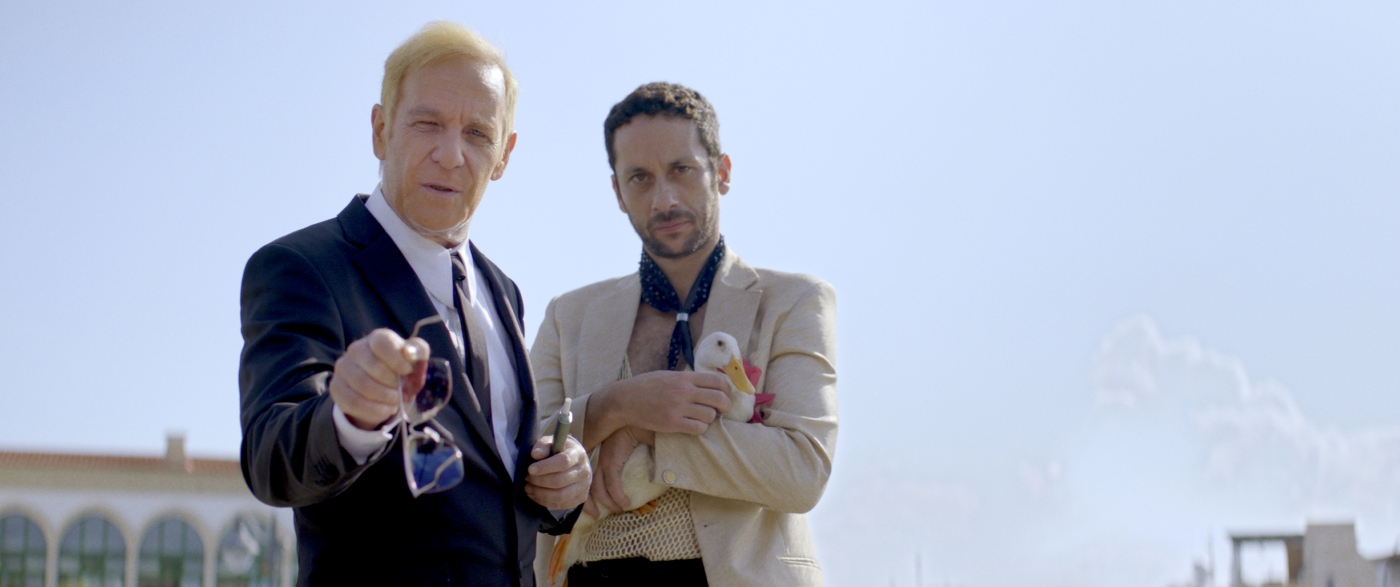by Nataliia Serebriakova
Worth: $17.00
FilmInk rates movies out of $20 — the score indicates the amount we believe a ticket to the movie to be worth
Cast:
Ariel Bronz, Efrat Dor, Aleksei Serebryakov, Naama Preis, Sharon Alexander
Intro:
Mixing the grotesque with the tender, the ecstatic with the despairing ... that refuses comfort or neutrality.
“There are only two words in the world — yes and no. Which one is yours?” says the main character, Y, to his newborn son Noah, who came into the world on the night after October 7, 2023, in Tel Aviv.
Y, a jazz musician living a fast-paced bohemian life with his wife Yasmin, chooses yes. The film opens to the pulse of the ‘90s techno hit ‘Be My Lover’. Yasmin and Y are a young, beautiful couple who aren’t above anything to make ends meet — from an orgy with an elderly wealthy client to dancing at glamorous events (Yasmin works as a choreographer). Yet whatever they do — they do it together: they please the rich under the influence of drugs and raise their six-month-old son with the same reckless devotion.
Their tiny apartment is cramped but full of energy — it feels like nothing could shatter the harmony of these partners in crime, almost like a modern-day Bonnie and Clyde, not even the endless phone notifications about the bombings in Gaza.
One night at a party, they meet a Russian billionaire (played by Aleksei Serebryakov), who quickly takes an interest in them. “Please, help me. I just want to be happy,” Yasmin tells the oligarch in a pleading tone. Soon, “help” arrives: the billionaire asks Y to compose the new national anthem of Israel. And Y, the ever-submissive artist, simply answers, “Yes.”
While the hero of his film says “Yes,” Nadav Lapid’s film says “No” — to the State of Israel. It is a musical, a kind of punk opera that unfolds into an existential drama. The film asks, how can one live in Israel today without being complicit in the crimes that the state commits against Gaza?
Back in 2021, when Lapid received the Jury Prize at Cannes for Ahed’s Knee, he was already asking the same question: is it possible to live in Israel and remain a decent human being? The protagonist of Ahed’s Knee — also named Y, and also a filmmaker — tried to resist the machinery of the state. Lapid now seems convinced that, after the events of October 7, most of Israeli society is no longer resisting.
This is a fiercely critical film — one that was extremely difficult to make with an Israeli crew. Many people refused to work on set, either before filming began or during production. That fact alone speaks volumes about the state of the society, which, much like Russia, is permeated with militaristic propaganda driven by the desire for revenge. It is precisely revenge that Serebryakov’s character speaks of in his monologue in Russian — and Y becomes its instrument.
Ultimately, Lapid’s new film feels like both a scream and a confession — an act of resistance against the suffocating moral paralysis of his homeland. Mixing the grotesque with the tender, the ecstatic with the despairing, he creates a work that refuses comfort or neutrality. It’s a film that challenges its viewers — Israelis above all — to choose between “yes” and “no,” between blind loyalty and moral awakening. In the end, Lapid’s “no” sounds less like rejection and more like a desperate plea for Israel to rediscover its humanity before it is too late.



